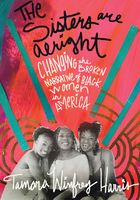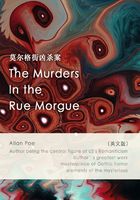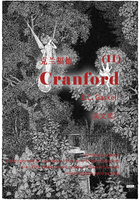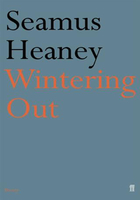Karen drove slowly down the late-night back street, not wanting to disturb the neighbours. The houses here were homes to the kind of families that didn't have wild weekend parties. Steady, middle-class lives behind solid respectable facades. More often than not, there was barely a light showing if she came home after eleven. Her job had made her sceptical about what really went on behind those smartly painted front doors, but as far as she was aware, none of their neighbours had so much as an outstanding parking ticket. It was entirely different from the rackety street where she'd grown up, with its loud evenings and shouting matches on the pavement, the drunken midnight fights and singing. Loving Phil Parhatka had altered her life in more ways than she could have imagined.
For years they'd worked together in the former Cold Case Unit in Fife, adapting to new technologies, learning how to read between the lines of old case reports, winkling the truth out of its defensive shell. She'd always been one step above him on the ladder of rank, but they'd never let that stand in the way of being mates. They had each other's back, and there had been times when she'd felt he was the only one on her side. They'd been a team and their success rate proved the value of that.
For her part, she'd known early on she was fighting against feelings that ran much deeper than friendship. She fancied him, she fantasised about him and she hated herself for risking their working relationship with her schoolgirl longings. When he was kind, she told herself he'd treat the Mint – or even a pet dog – with the same consideration.
And then it had all changed. Right in the thick of their toughest case, she'd discovered he felt the same way. Within weeks she'd moved out of her identikit box on a soulless modern development and into Phil's late Victorian villa, a house that had been restored to within an inch of its life by his sister-in-law, an ardent architectural historian who had watched too many TV makeover shows. Karen still couldn't quite believe she'd escaped into so much respectability.
Sometimes she was tempted not to turn into the gravel drive between the voluptuous herbaceous borders, to keep on driving to the end of the street and beyond, back to where she wouldn't be found out for the fraud she feared she might be.
But not tonight. Tonight, she led the way into the stone-built semi like a woman who belonged. The house was silent and dark, save for a dim glow from the rear. 'Phil home?' River asked, her boot heels clattering on the encaustic Victorian tiling. 'Or is it just cop instinct always to leave a light on?'
'He's away on a course this weekend. Something about developing collateral offences.' Karen switched on lights as they went through to the kitchen at the back of the house. It was the only room where Phil had managed to stem the tide of his sister-in-law's fantasy. When Karen had moved in, it had been a seventies relic. Now it was all stainless steel and wood, surfaces littered with appliances and general clutter; a proper kitchen where meals were made and people sat around talking to each other.
'What does that mean?' River collapsed into a kitchen chair, looking grateful for the break. Her dark hair was uncharacteristically loose and wild, forming a chaotic halo round her head, and her big grey eyes had blue shadows underneath them. She'd always been slim; now she was tending towards skinny, her veteran waxed jacket taking on new vertical creases where there was no longer flesh to fill it. Her jeans were unusually loose on her, the denim pooling at her knees and inner thighs.
'I know I was dubious about him leaving cold cases just because we're together, but he's really got stuck in to this Murder Prevention Team. Apparently, there's been some research that indicates that men who are violent abusers tend towards petty criminality in other areas of their lives. Like, they don't pay their TV licence, they drive their cars without insurance, they run red lights, they shoplift. The kind of shit people do to prove to themselves they're not just another brick in the wall.' Karen pulled a bottle of Aussie red out of the wine rack and unscrewed the cap. 'So Phil's team is developing this strategy where they try to take the abusive partners out of reach of the victims by putting them under the microscope and hitting them with every little infringement. Sometimes they get enough to put the bastard behind bars. Other times, they just harass the bastards to the point where it's easier to walk away and go and live somewhere else.'
'Isn't that simply shifting the problem somewhere else?' River picked up the glass that Karen had poured for her. She sniffed it, sipped it then nodded once. 'Nice.'
'Yeah. But hopefully somewhere that also has the same policies in place. The idea is that they eventually get the message that abusing their partners means they'll be abused themselves in a slightly different but very uncomfortable way. Plus sometimes the team gets enough to put them behind bars, which means they're right out of the equation in a way that spares the victim having to give evidence about what he did to her.'
'And does it work?'
Karen shrugged. 'Phil thinks it saves lives.' She took a large bag of salty-and-sweet popcorn out of the cupboard and tipped it into a bowl. 'But more to the point: tell me about my skeleton.' Once they'd bagged and tagged the remains, River had taken them to the mortuary. Karen had left her to it. In her experience, people got on better with the things they were best at if you left them to it. Looking over their shoulders never improved the quality of the work. While the forensic scientist had examined the body, Karen had focused on the recent history of the John Drummond, trying to establish who had had access and when. It would have been a thankless task at any time, she suspected, but on a Saturday afternoon and evening, it was damn close to impossible. All she'd been able to establish were denials. Nobody had made regular use of any part of the building for a dozen years, not since a charity involved in organising outdoor adventure training for deprived inner-city teenagers had moved out. Nobody had squatted the building. Nobody from the security company nominally charged with its preservation from harm would admit to having ever climbed the stairs. Nobody associated with the school back in the mists of time had been reported missing. Most importantly, her quest to find anyone who knew anything about free-climbing the John Drummond had gone cold. Fraser Jardine's pal had his phone turned off and until he got back to them, that tantalising line of inquiry was going nowhere. All those negatives. Now she was gagging for something positive.
River crunched a mouthful of popcorn to annihilation. 'It's a male. And he died from a small-calibre gunshot wound to his forehead. Beyond that, much of what I can tell you is best-guess at this point. I'd guess he was murdered because of the site of the entry wound.' She pointed to a spot above her right eyebrow. 'I've never seen a suicide shoot himself there. The temple. The roof of the mouth. Once, right between the eyes. But never way off centre like this.'
Karen nodded, stuffing popcorn in her mouth. 'Mmm. Thought as much.'
'Plus there's no sign of a bullet. But that doesn't necessarily mean someone removed it. There are signs of rodent and bird activity on the bones and around the body.'
'So a squirrel or a magpie could have carried off a bullet and dropped it elsewhere?'
'Easily. As far as ID is concerned, I'd say he was somewhere between forty and fifty when he was killed. His dental work is interesting. There's a couple of crowns, pretty expensive gold and porcelain work, probably done in the two or three years before he died. And probably in this country. But there's other stuff, older stuff. I've seen work like that in bodies from the west end of the old Eastern bloc. Ukraine, Albania, Bulgaria, Bosnia, that neck of the woods.'
'So you think he'd come from there but he was living here?'
'Looks that way. Unless he was some sort of deep undercover agent. That's not the sort of place you'd choose to have your teeth fixed if you had a choice. Not back then.'
'Back when?'
River considered, swirling the wine in her glass. 'I'd say he's been dead between five and ten years. It's hard to be precise, there's too many variables. His clothing has decomposed, which means natural fabrics. We did find a few fibres under his body. I'd say he was probably wearing cotton underwear, cotton chinos rather than jeans – no rivets – and a shirt that was a mix of cotton and linen. Woollen socks and what looks like some kind of grippy climbing shoe. Most of the material has rotted or been scavenged by rodents or birds for nesting, but the rubber trim and soles are pretty much intact. There are a few bits of wool still between the sole and the bones of the foot.'
'The shoes make sense. We've got a witness who says there are mad bastards who free-climb the outside of buildings like the John Drummond. That offers an explanation of how he got up there without having to come through the building and reach the skylight without a ladder. Because there's no sign of a ladder anywhere.'
River took another handful of popcorn. 'People never cease to amaze me. Why would you want to climb up a building when there's a perfectly good staircase inside? I get the point of going up a mountain. The challenge, the relationship to nature. The views, for God's sake. But buildings? That's just weird.'
'Aye, well, I don't care how weird it is if it gives me a way in to this case. Because what you're telling me's painfully short on detail. No clothes colours, no style, nothing we can compare with descriptions of what a misper might have been wearing… ' Karen sighed.
'Sorry. I can't even tell you what colour his socks were. But I'm sure there'll be other things about him that'll stand more chance of matching one of your missing persons.' River pulled out her mobile and summoned a gallery of photographs. 'Look.' Karen hitched her chair round till she could share the screen. 'This must have been in his back pocket.' The phone showed a dark red card with a magnetic strip, the size of a credit card. 'Do you recognise it?'
'Should I?'
'I don't know. It looks like a hotel-room key to me, but there's no printing on it to suggest where it came from.'
Karen shook her head. 'There's hundreds of hotels and guest houses in the city. Maybe forensics can get some detail off the magnetic strip. But before I let them loose on it, I'll see if the fingerprint bureau can get anything off it. Was that the only ID on him?'
'That's it. From where it was positioned, I'd guess it was in a back pocket. Whoever killed him probably took his wallet and anything else he was carrying that might identify him. I'm guessing once they had that, they stopped searching.'
'You have to have a pretty strong stomach to search a corpse. I'll just have to hope we get something off the key-card.' Karen refilled their glasses and yawned. 'Still, it makes a change from the usual cold-case scenario. No ploughing through somebody else's crappy notes and getting depressed at the poverty of their skills.'
'You never know, you might end up getting a foreign trip out of it if your victim turns out to have a past somewhere else.'
Karen gave a dark chuckle. 'Aye, right. Knowing my luck, he'll be an Albanian people trafficker. So when will you have some more for me?'
'DNA by Monday morning. I'll get the bone analysis under way first thing tomorrow. There's always facial reconstruction to consider if you're not getting anywhere with the hotel key and the hardcore forensics,' River added thoughtfully.
Karen pulled a face. 'I know. And they've got much better at it these days, with the 3D computer imaging. But it's expensive and if our guy is from overseas, chances are slim we'll pick up enough hits for a definite ID. I don't know if I can justify it in terms of budget. But I'll bear it in mind.'
'That's the joy of modern forensics, Karen. ID used to be the hardest thing to establish when you came across human remains. But these days, there's no hiding place. We all carry our history under the skin. That glass of wine you're drinking now? It's just another contribution to the sum total of Karen Pirie.'
Karen laughed and chinked her tumbler against River's. 'Another hundred and twenty calories to the sum total of Karen Pirie. And speaking of which, you've lost weight you didn't have to spare.'
River's eyes slid away from her friend. 'I'm fine,' she said. 'I've just been busy. You know how it is.'
'I know when I'm busy I put weight on. Eating rubbish on the run.'
'I'm the opposite. I forget to eat.'
Karen shook her head, a wry smile on her lips. 'See, that's a sentence that makes no sense to me. How can you "forget" to eat?'
River pulled herself together and forced joviality into her voice. 'Same way you "forget" to sleep when you're hot on the heels of an answer to something nobody else has been able to figure out.'
'You know me so well. But I'm not hot on anybody's heels tonight.' She yawned again. 'And tomorrow is another day. Shall we hit the hay?'
River glanced at her watch. 'In a bit. I need to call Ewan. He'll still be up. I'm in the usual place, right?'
Karen stood up, draining her glass. 'Yeah. And tomorrow we can get cracking on the mystery man's ID. The sooner we know that, the sooner we can find the person who put a bullet in his brain. There's a killer out there who's had too many undisturbed nights. It's time to give him nightmares.'
In the Balkans, the shortest distance between two points is never a straight line. History and geography have constantly collided with the human capacity for cruelty in those disputed territories. It's the place where I discovered my own vulnerabilities with depressing repetitiousness. But it's also a place where I discovered love and hope and the possibility of redemption.
Nothing has ever made me feel more mortal than the crash bang wallop of an artillery barrage. The scatter of light bursting across the sky, the shaking of the building around me, the terrible echo of the booming explosions filled me with terror. It's not how I expected my working life to turn out when I signed up for a geography degree thirty-two years ago. I had no idea that being a geographer would include being shot at by snipers or driving an ambulance crammed with medical supplies halfway across Europe or hiding from secret policemen in rat-infested basements.
I wasn't raised for this sort of adventure. I grew up in the Howe of Fife, an island of conservatism and agriculture at the heart of a radical region with a history of mining, shipbuilding and fishing. My father was what's politely called an agricultural labourer but would more accurately be described as a serf. My mother worked part-time in the farm dairy and she was the driving force behind my reaching escape velocity.
I was lucky enough to arrive at University College, London just as the human geography aspect of the discipline was forging new areas of interest. Geography departments had traditionally been overwhelmingly male, but a new wave of feminist academics was infiltrating everywhere. The human geographies of women's lives were laying claim to our attention, with headline-grabbing movements such as the women's peace camp at Greenham Common providing fruitful sources of research and published papers. I know this is a statement that may provoke some incredulity, but it was the most exciting time to be a baby geographer.
My PhD supervisor was one of those radical groundbreakers. Melissa Armstrong had returned to London after five years of postgraduate and post-doctoral work in the US, fired up with Marxist and feminist ideology. She hit UCL with all the disruptive energy of a tornado, uprooting existing power structures and shifting the tectonic plates of physical geography to make way for something completely different. Melissa spent as much time with philosophers and social scientists as she did with her departmental colleagues and her energy left her colleagues reeling.
I was one of only two female geography postgrads and we became her wingmen, her disciples and her proselytisers. Our admiration bordered on adulation, especially when she put her politics into practice. In the late 1980s, the dissident philosophical community in Prague issued a clandestine invitation to Western academics they suspected might be sympathetic to their cause. Come and help us subvert the regime by conducting underground seminars, they said.
Melissa became a fellow of St Scholastica's College, Oxford just in time to join that first wave of collaborationist libertarian academics. She became one of a group who taught in crowded flats and rooms above bars, bringing the same liveliness and imagination to those seminars as she delivered to us back in Oxford. (For I had followed her to Oxford, earning a Junior Research Fellow post at Schollies.) Even though the people they were teaching and inspiring were working long hours as scaffolders and shop assistants, street sweepers and lavatory attendants, they somehow found the energy and passion to respond more enthusiastically than I suspect we ever did.
Melissa made the risky and unnerving journey many times. She smuggled books in her luggage – feminist texts disguised as airport novels – and smuggled out samizdat papers from the people she increasingly came to see as colleagues in Prague and beyond. Eventually the authorities grew suspicious of her repeated visits and after some harrowing encounters with the security police, the Czechoslovakian authorities told her she would be granted no more visas. Melissa was furious and frustrated, but her determination to fight for freedom of speech and of learning burned just as bright in her heart. I remember the evening she found out that she would never be allowed back to work with her unofficial students in Prague again. We were in her office at St Scholastica's and she opened a bottle of wine with such force that she bent the corkscrew.
'I'm not giving up,' she declared, sloshing Soave into a pair of tumblers. 'They think they can shut us up, but it's not going to work.'
'But what can you do if they won't let you back in?'
Melissa took a long swig from her glass, then let her dark hair fall forward so I couldn't see her face properly. 'Some of the others are setting up a foundation to raise money to support the dissident community. They want to try to smuggle people out and support them till they can find university jobs here.' Then she tossed her hair back, defiance on her face. 'I don't think that's how you change the world.'
'So what will you do?'
'I'll find somewhere else to do what we've been doing in Prague. It's not the only place where people are denied the freedom to talk and think. This is too important to walk away from, Maggie. These people need us.'
It wasn't long before Melissa found a solution that went some way towards satisfying her desire to spread the word of the new discipline that was being carved from the marriage of feminism, philosophy and geopolitics. The answer lay in Dubrovnik. Although it was part of the wider Soviet bloc, Yugoslavia had more freedom to connect with the West. And at the Inter-University Centre there, it was possible for academics from both sides of the ideological divide to meet. Those oppressed and constrained by the regimes they lived under could hide their dissident tendencies and disguise the nature of the encounters that made their time at the IUC so fruitful. They could engage in seminars and discussions of the latest theories, then take those subversive ideas back to their own campuses and spread them via the handfuls of students they could trust. Melissa was in her element, enthusiasm and intelligence transmitting themselves to everyone she encountered.
Just as she did in Oxford, Melissa made learning fun. Seminars segued seamlessly into social occasions, late-night drinking sessions filled with discussion and disputation. She started a journal for dissident feminist philosophers and geographers, persuading a small German academic publishing house to fund the anonymous contributions. I remember sitting up into the night typing the handwritten articles, trying to make sense of the sometimes fractured English. But I was happy to be part of the adventure. Everybody loved Melissa; everybody wanted more of her.
Unfortunately for Melissa, the fellows of Schollies were among that number. Instead of being proud of what she was achieving in the wider world, most of the governing body suffered from the tunnel vision that outsiders suspect all academics of. They were more interested in their own convenience than in the human rights of a bunch of wannabe philosophers they'd never heard of. Melissa was being paid by Schollies to teach and to shoulder her share of administrative duties. In her absence during the summer term of 1991, when it looked as if Croatia would be engulfed in civil war any day, the college Governing Body had appointed her Dean and were insisting she honour her teaching commitments.
Melissa was livid. Although from my present perspective as a senior member of college I can see that the Governing Body had a difficult balancing act to fulfil, at the time, I was wholeheartedly in Melissa's corner. Following the fall of the Berlin Wall and the imminent collapse of the Soviet Union, the role of Western academics was even more crucial for the future, she argued. Much more crucial than teaching undergraduates whose education had been infinitely more privileged. In my eyes, she had sole occupancy of the moral high ground. But in spite of her impassioned arguments to anyone who would listen, the college remained impassive. Come the autumn term, Melissa's wings would be clipped. She wouldn't be running seminars for dissidents in Dubrovnik. She'd be teaching Malthus and the history of population development in first-year tutorials.
And that's how I ended up in Dubrovnik on 1 October 1991, when the bombs started falling that cut off the water and the electricity to the city.













